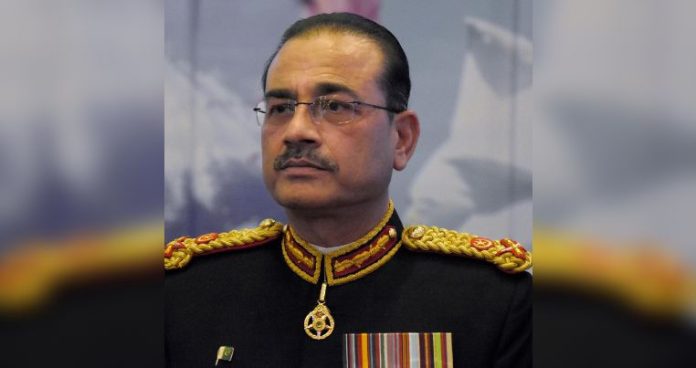Pakistan’s Prime Minister Shehbaz Sharif has nominated Lieutenant General Asim Munir as the new Chief of Army Staff (COAS). Simultaneously, Lieutenant General Sahir Shamshad Mirza has been chosen as Chairman Joint Chiefs of Staff Committee (CJCSC). According to media reports, president Arif Alvi has approved the summary of the appointment of the new chief.
The move to replace the army chief came after weeks of speculation. Pakistan Tehrek-e-Insaf (PTI) Chairman Imran Khan previously accused the government of trying to pick a favourite as the new army chief. A day ago, Khan told the media that the President would “definitely” consult him whenever the summary for new COAS came. PTI’s Shibli Faraz agreed that it was Alvi’s “moral obligation” to consult with the party’s chairman before appointing the people government suggested.
Who is Asim Munir?
Asim Munir is the 11th army chief of Pakistan since the position was introduced in 1972. Previously, he served as the Quartermaster General at the General Headquarters (GHQ), supervising military supplies for all units. He was also the Triple X Corps Commander Gujranwala and led the country’s 2 major spy agencies, the Inter-Services Intelligence (ISI) and Military Intelligence (MI). However, his run as the ISI chief lasted only 8 months as he was sacked in 2019 by then-PM Imran Khan. His appointment to a more powerful position in the army came at a time when Khan was involved in a deep conflict with the PDM government, military, and ISI. Khan blames the military for conspiring his ouster in April 2022 and has been organizing anti-government protests in various cities since then.
The holder of the Sword of Honor and Hilaal-e-Imtiaz has been a critical decision-maker in shaping the country’s security policies. His political affiliations are not clear, as the sources contradict each other. Some say he is apolitical, while others believe nothing can change the powerful army’s extraordinary influence over the governance of this nuclear-powered nation. The army plays a dominant role in Pakistan’s domestic and foreign politics. Experts opine that this new appointment could crucially impact the country’s fragile democracy and its relations with other countries like India, Afghanistan, China or the United States.
Asim Munir will replace ex-COAS General Qamar Javed Bajwa, who will retire on November 29 after serving for 6 years.
Outgoing General
General Qamar Javed Bajwa was appointed army chief in 2016. Originally, he was supposed to retire in 2019, but Khan extended his tenure by 3 years. There were speculations that he would be seeking another extension, but Inter-Services Public Relations (ISPR) confirmed that he had no intentions of carrying on as he was already on his farewell tours this year.
The appointment of the next army chief is considered a significant subplot in the ongoing political crisis in the country, which started with a no-confidence motion against Khan. The ex-PM suspected that his ouster was linked with the upcoming retirement of Bajwa, so he offered him an indefinite extension to prevent the opposition’s no-confidence vote from succeeding.
In one of his farewell addresses, Bajwa acknowledged the criticism against the military for its unconstitutional interference in politics while condemning the political parties for always displaying intolerant behaviour towards the opposition.
During his time, Bajwa worked to have balanced relationships with China and the US. PTI’s government pivoted more towards China while the military sought to thaw relations with the US. Bajwa worked closely with the US forces during the evacuation of Kabul in 2021 after the Taliban came to power.
Bajwa was also interested in economic matters, like suggesting how much of the budget must go to the military. He made highly-publicized tours of China and the Middle East to secure financial aid for Pakistan. He also lobbied with the US to make a deal with the International Monetary Fund (IMF). Publically, he came off as a patron of friendly ties with India and avoided escalation like not retaliating to the latest controversy about Indian BrahMos Missile “accidentally” ending up in Pakistan.
However, he has been vehemently criticized in his home country for allegedly meddling in politics. When Khan became PM in 2018, the opposition accused then the military establishment of aiding his ascent to power. And when Khan was ousted from power, he also blamed the same military establishment. The army has denied any involvement in Khan’s ouster.


